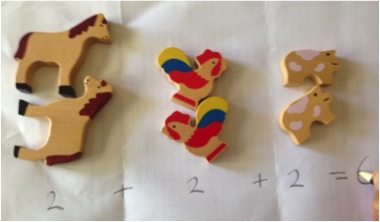
Have you heard of dyscalculia?
February 18, 2014
 Children with dyscalculia (mathematics disability) have a poor sense of number. They experience significant difficulties grasping and understanding the size or quantity of a number and the relationship of numbers to one another.
Children with dyscalculia (mathematics disability) have a poor sense of number. They experience significant difficulties grasping and understanding the size or quantity of a number and the relationship of numbers to one another.
Approximately 3 to 6 per cent of children suffer from dyscalculia. Despite its prominence, most teachers, psychologists, and many researchers know very little about it. Unfortunately maths difficulties are often not detected until students are nine or 10 years old when they are three to four years behind their peers in mathematics. This makes it very difficult for them to catch up. To counter late detection some schools in the UK screen all students for maths difficulties. Next month we will release to P4S members a Year 2 maths screen to help with early detection.
How can teachers best work with these students? (part 1)
- Have the student formally assessed by a psychologist who specialises in learning disabilities, and follow their recommendations.
- Assess exactly what the student can and can’t do across the mathematics curriculum. Do not assume they have pre-school counting skills or other basic mathematical skills because of their age. A full assessment is fundamental to developing an intervention approach to assist the child.
- Build number sense. These students have significant difficulties in having a ‘sight recognition’ for quantity, and have difficulty understand the size of the number and its relationship to other numbers. Practice recognizing by sight quantities to 7.
- Use number facts charts and technology (e.g. calculators). If number facts are mastered, reliance on supported learning can be reduced as appropriate. The student may always struggle to acquire and use basic number facts. Support resources, including calculators allow the child to overcome ‘computational barriers’ to participating in more advanced mathematical topics in later years.